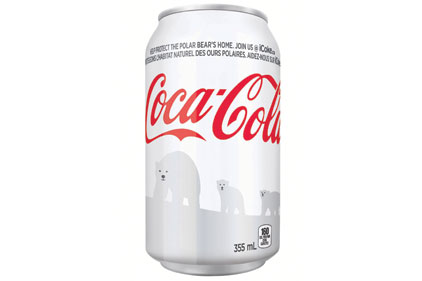Coca-Cola plans to invest up to $1 billion in marketing campaigns like Share a Coke by 2016 as it looks to turnaround successive quarters of flagging growth.
The company’s CEO Muhtar Kent explained it plans to make an extra $1 billion in productivity savings by 2016, the majority of which it will reinvest back into marketing, to overcome its “speed bump” year and achieve its plan to double revenues by 2020.
Kent said on a call with analysts that the company plans to build on its marketing, in both quantity and quality, which it believes will restore “steady momentum” in 2014 and beyond.
The turnaround plan covers five areas: accelerating growth of its sparkling portfolio, strategically expanding the profitable still portfolio, increasing media investments by maximizing systems optimization, making improvements to point of sale and investing in the next generation of leaders.
On using brand Coca-Cola as a catalyst for growth, Kent said, “There is quite simply no other brand in the world like Coca-Cola. It is the world’s most universal beverage brand, and we are fortunate to be its steward.
“In many markets around the world, brand Coca-Cola is monadical, but we need to work harder to enhance the romance of the brand over the world.”
Kent drew on the global Share a Coke campaign, which originated in Australia and New Zealand in 2012 and was executed in the UK in 2013, as an example of how the company will look to invest in the brand going forward, including a return to the activity year.
He said the activity was much more than a marketing campaign, but rather a “system wide collaborative effort to engage with consumers in a meaningful and effective way”. Coca-Cola says the effort helped increase volume sales, household penetration and brand love scores over the 20-plus markets it has appeared in to date.
Coca-Cola says it is now the owner of four $1 billion still and juice brands, but it is keen to build on that number.
Kent said the company would look to establish a sustainable formula for value creation in new stills categories, following on from its move to take a majority stake in the Innocent juices and smoothies business last year.
Fresh from announcing a 10-year deal with Keurig coffee machine maker Green Mountain Coffee Roasters, Coca-Cola said this strategy could also include further partnerships.
Kent said, “If you look at the trend for the next 10 years, people are going to spend more time at home, work more from home, so home is going to be an even more important place for consumers and we need to be present there with different technologies, packaging and different ways to present our brands.”
Coca-Cola plans to make $1 billion in productivity savings by 2016 through global supply chain optimisation, data and IT standardization and more efficient resource and cost allocation.
Those savings will be invested into global brand building initiatives with increased consumer-facing media spend.
Kent said, “This is a global increase in marketing and every country we operate in, large or small, we know it works. When we invest in marketing, our global partners invest in feet on the street, more coolers, more trucks…that’s what will be happening and that’s what we will see happening in our business as we restore steady momentum in 2014 and beyond.”
Kent heralded 2014 as the “year of execution at the point of sale,” which will begin with brand Coca-Cola.
The company plans to work together with its bottling partners to align its systems across the world to improve how its products are displayed at the point of scale. It will explore enhancements to areas such as packaging, price and location-based marketing.
The five-point strategy announcement came after the company reported its revenue fell by 2% to $46.9 billion and operating income decreased by 5% to $10.2 billion in the 12 months to December 31.
Kent said the lingering effects of the global recession in 2009 and concerns about obesity and nutrition in developed markets had negatively affected sales. In the earnings report, Coca-Cola said weak consumer confidence had also had an unwelcome impact.



